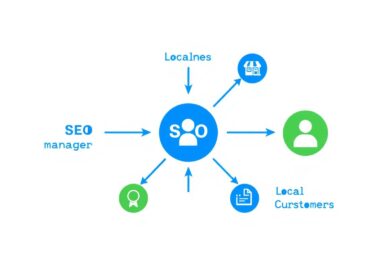What you need to know about Google API Leaks

Table of Content
As an Australian small business owner, the thought of a data breach has always been at the back of my mind. But when I heard about the recent Google API leaks, it hit me like a tidal wave. I couldn’t help but wonder, “Could my company be next?” The implications of these leaks are far-reaching, and I knew I had to dig deeper to understand the true extent of the risks we’re facing.
In the digital age, our dependence on cloud-based services like Google’s API has become integral to the way we conduct business. But as this scandal has shown, even tech giants can be vulnerable to devastating security breaches. The exposure of sensitive information has the potential to undermine consumer trust, jeopardise our competitive edge, and leave us scrambling to shore up our defences.
As you delve into this article, my hope is that you’ll gain a clear understanding of the Google API leaks, the cybersecurity risks they pose, and the steps you can take to protect your business. Together, let’s navigate this treacherous landscape and emerge stronger, more resilient, and better prepared to safeguard our most valuable asset – our data.
Key Takeaways
- Understand the nature and scope of the Google API leaks, including the types of sensitive data exposed.
- Explore the potential cybersecurity vulnerabilities and authentication flaws that can lead to unauthorised access and data breaches.
- Discover the reputational and financial consequences of these leaks, and how they can impact Australian businesses.
- Learn about the importance of proactive incident response and effective data protection strategies to mitigate the risks.
- Gain insights on how to strengthen your Google Cloud infrastructure and API security measures to safeguard your company’s future.
Unveiling the Risks of Google API Leaks
The recent Google API leaks have exposed the tech giant’s users to a range of serious risks. From sensitive data exposure to critical cybersecurity vulnerabilities, these leaks have the potential to compromise the privacy and security of individuals and businesses relying on Google’s infrastructure.
Sensitive Data Exposure
One of the primary concerns stemming from the Google API leaks is the potential exposure of sensitive data. These leaks can grant unauthorised access to confidential information stored within the Google Cloud infrastructure, including personal details, financial records, and proprietary business data. This breach of data privacy can have far-reaching consequences, from identity theft to the loss of competitive advantage for companies.
Cybersecurity Vulnerabilities
The flaws in the API authentication process that led to these leaks also highlight significant cybersecurity vulnerabilities within Google’s systems. Hackers and malicious actors can exploit these weaknesses to gain unauthorised access to the Google Cloud, potentially compromising the integrity of the entire infrastructure. This poses a serious threat to the data security and integrity of Google’s users, who may find their sensitive information at risk of being accessed, manipulated, or even held for ransom.
To protect yourself and your business from the risks associated with the Google API leaks, it’s crucial to stay vigilant and take proactive steps to safeguard your data. Work closely with cybersecurity experts to identify and address any vulnerabilities within your Google Cloud systems, and consider implementing robust access controls and authentication measures to mitigate the risk of unauthorised access.
Ready to see real results or talk to a professional? Talk to us on 0298344119 or hello@defyn.com.au.
Google API Leaks: Dissecting the Aftermath
The fallout from the Google API Leaks can be far-reaching, particularly when it comes to the potential reputational damage faced by businesses and individuals in Australia. In the wake of such a high-profile incident, it’s crucial to understand the importance of effective incident response strategies and the implementation of robust cybersecurity best practices to mitigate the risks associated with data breaches.
The exposure of sensitive data through the Google API Leaks can have serious consequences for your organisation’s reputation. Customers, partners, and stakeholders may lose trust in your ability to protect their information, potentially leading to a decline in brand loyalty, decreased customer acquisition, and even legal and regulatory repercussions. Navigating the aftermath of such an incident requires a comprehensive and proactive approach to data breach management.
By embracing the principles of regulatory compliance and implementing industry-leading cybersecurity best practices, you can help restore trust and demonstrate your commitment to safeguarding the privacy and security of your data. From developing a robust incident response plan to regularly reviewing and updating your data protection measures, taking a proactive stance can be the key to minimising the reputational damage and emerging from this challenge stronger than ever before.










